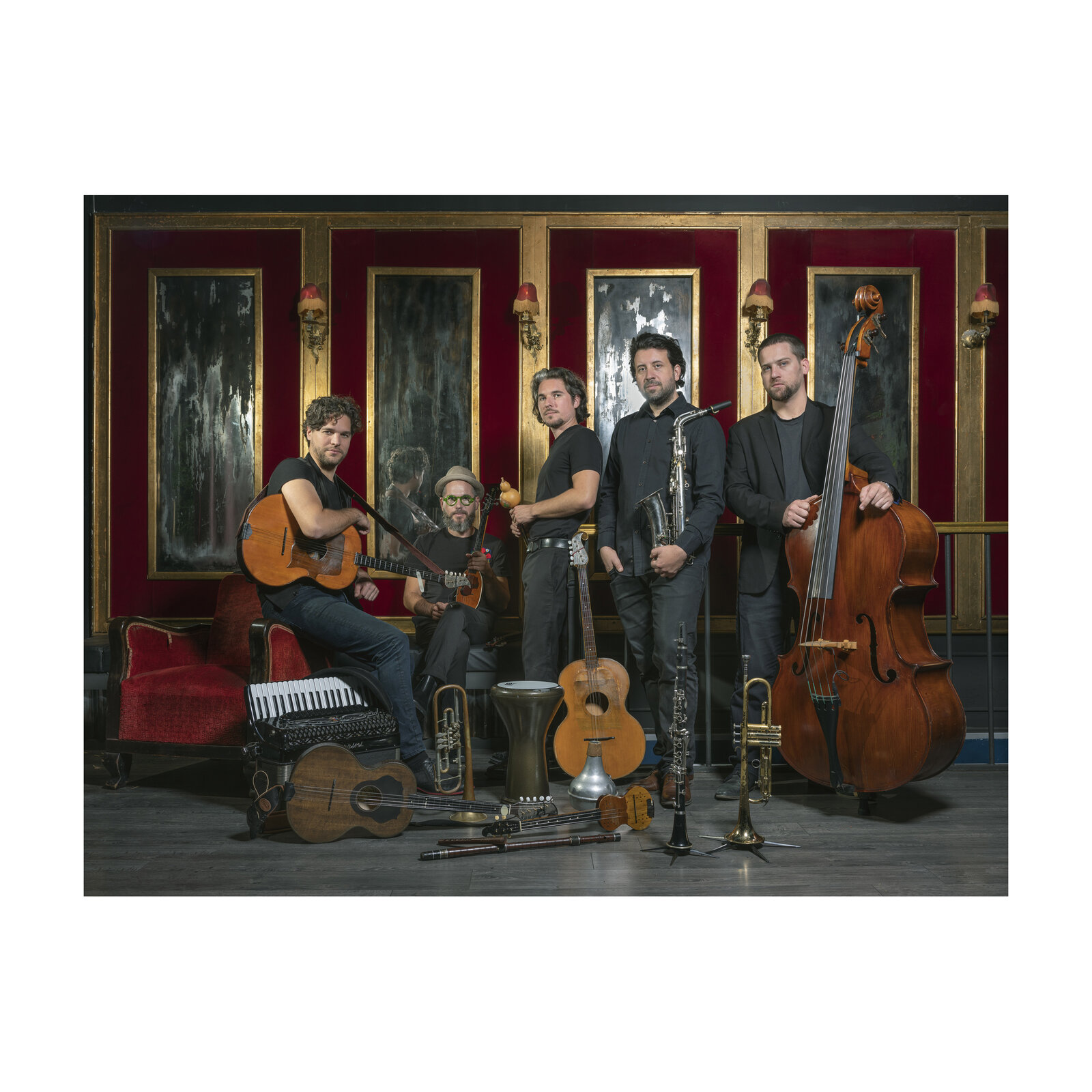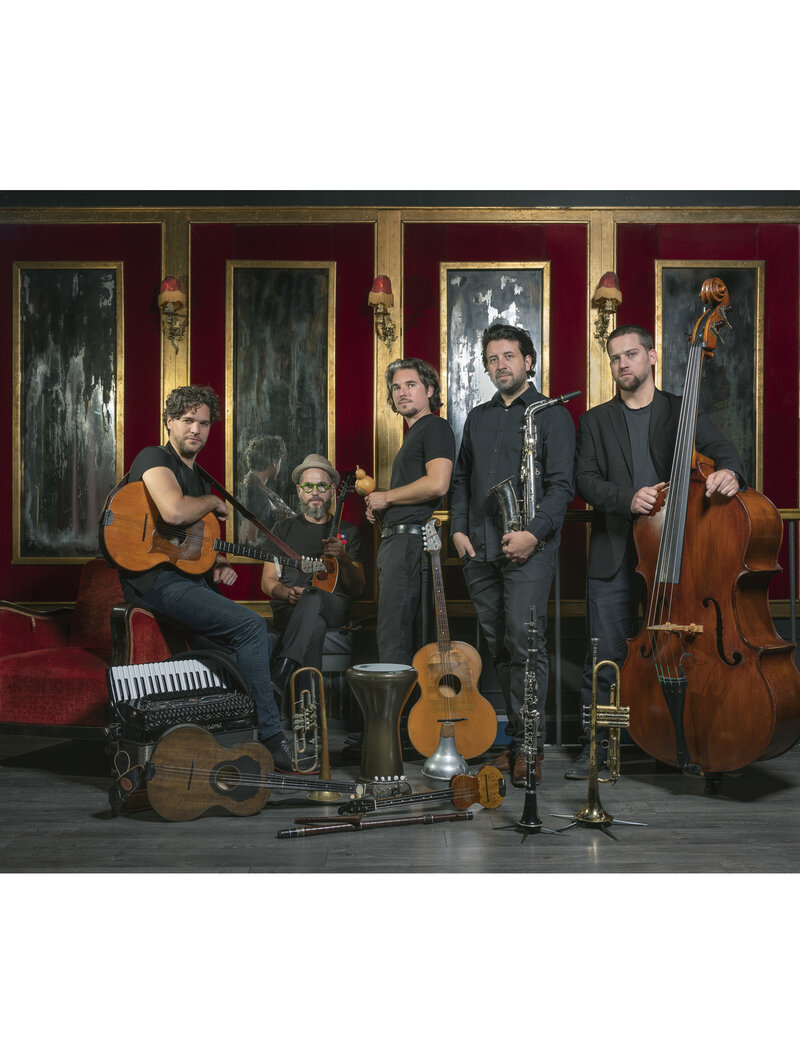Söndörgő / Gisela Days 2024


Every May, the largest multidisciplinary arts festival in the City of Queens fills the streets of the castle quarter and the city centre with a colourful cavalcade of free music, art, theatre, literature and family events.
The primordial nature of traditional music, the sophistication of classical compositions, the energies of rock music and the purity of Bartók's thinking characterize the Hungarian band Söndörgő, one of the most exciting, innovative and successful bands on the international world music scene.
When Söndörgő was formed more than a quarter of a century ago, the members were still children and practically grew up along with the band. Four of the five members are part of the same family of musicians: three brothers (Aaron, Benjamin and Salamon Eredics) and a cousin (David Eredics). Their spiritual backbone is the legendary Vujicsics Ensemble, which has been playing authentic South Slavic folk music for close to fifty years: father and uncle figures, along with other Eredics musicians. Thus, in accordance with Zoltán Kodály’s ideals, the musical education of the members of Söndörgő began nine months before their birth.
Their primary instrument is the tambura, a plucked instrument popular in both Serbian and Hungarian folk music, but various wind instruments and the accordion are just as important elements of the soundscape of Söndörgő. As for the genre of their music, the obvious and most no-brainer label they usually receive is “world music”. Their 2014 album Tamburocket was 1st on the list of European world music radio stations, becoming the 3rd best world music album of the year and Songlines and fRoots, two English world music magazines, also selected it as the album of the year.
If we want to be a bit more specific, we can say that Söndörgő plays traditional Southern Slavic music. In this case we are not that far from reality, we just have to make it clear what tradition exactly means to Söndörgő. According to their artistic worldview tradition is somehow reminiscent of the ever-changing river described by the Greek philosopher Heraclitus: you cannot step into it twice. Traditional music is not treated by them as a museum object to be reconstructed, but as a living and pulsating raw material, a source of inspiration.
They are deeply acquainted with the roots of their musical world, even in a scholarly way if necessary (all four Eredics members teach at the Department of Folk Music of the Budapest Academy of Music), but what they are truly interested in is not what traditional music once meant, but what it can mean today and tomorrow. Their first albums spoke more strongly about what they can absorb from these traditions (it is reflected in their joint album with Macedonian music legend Ferus Mustafov). In the 2010 record Lost Music of the Balkans, which has been distributed in over 60 countries a new approach can be felt. From that time onwards they are more interested in what they can add to tradition. Their most recent 2019 album, Eight 8 Eight is already a world beyond genres: the genre here is Söndörgő itself. The album can even be listened to as a kind of a “concept album”, where one song flows into the other, just as consciously constructed as their live concerts.
2020, the twenty-fifth year of the band marked a turning point in the life of Söndörgő in many ways. The break caused by the pandemic slowed and then completely stopped the band’s insane pace of concerts and allowed – or rather forced – them to draw the conclusion of this first, dazzling quarter century. The first change of personnel in the history of Söndörgő might also be connected to it: the only non-Eredics member playing bass and cello tambourine Attila Buzás, was replaced by Ábel Dénes in 2020. The quarantine period, however, has not dulled the band’s creative energies: they are currently working on material for their new album, a further step on the path they stepped on with Lost Music of the Balkans. In their new album, strictly written compositions and free improvisations fit together perfectly, just as inspirations from a variety of sources merge into the inimitable Söndörgő style. In this respect, they have only one criterion, one that Béla Bartók formulated in a 1931 letter: “I will not exclude myself from any influence, […] only the source should be clean, fresh and healthy!”
